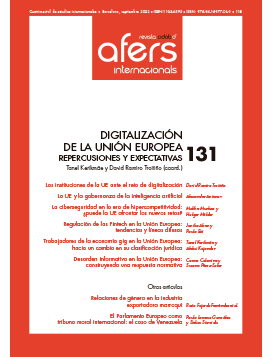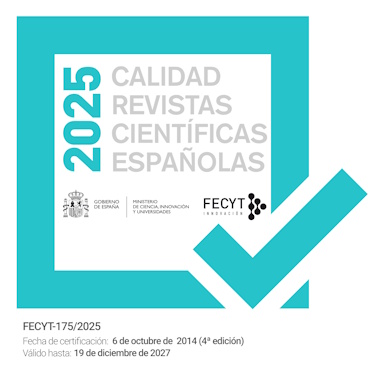Gender relations in the Moroccan export industry: Casablanca as a case study
Keywords:
gender, intersectionality, Morocco, international division of labour, grounded theoryAbstract
This paper aims to analyse how gender relations interact in labour socialisation in the Moroccan export industry – based on a case study of the city of Casablanca – and the relationship with international migration. The paper uses qualitative research, with analysis based on grounded theory and an intersectional studies approach. The global labour market emerges as a new axis of inequality creating new spaces that keep the majority in a precarious position. The paper’s original contribution is to apply the intersectional theoretical framework to the Moroccan context, focusing on a relational view of the categories. Identifying three basic social processes (role of women, crisis of masculinity and migration) allows us to expand the knowledge about this reality.
Este artículo recoge parte de los resultados de un proyecto de investigación denominado «Reconstruir el campo de las regiones no fronterizas en la relocalización industrial y la migración: los casos de Marruecos y México» (CSO-2013-40646), financiado por el Plan Nacional I+D+i del Ministerio de Ciencia e Innovación de España.
Revista CIDOB d’Afers Internacionals n.º 131, p. 163-184
Quadrimestral (May-September 2022)
ISSN:1133-6595 | E-ISSN:2013-035X
DOI: https://doi.org/10.24241/rcai.2022.131.2.163
Reception date: 20.10.21 ; Acceptance date: 01.04.22
>> The full text articles of this issue are available only in Spanish language













